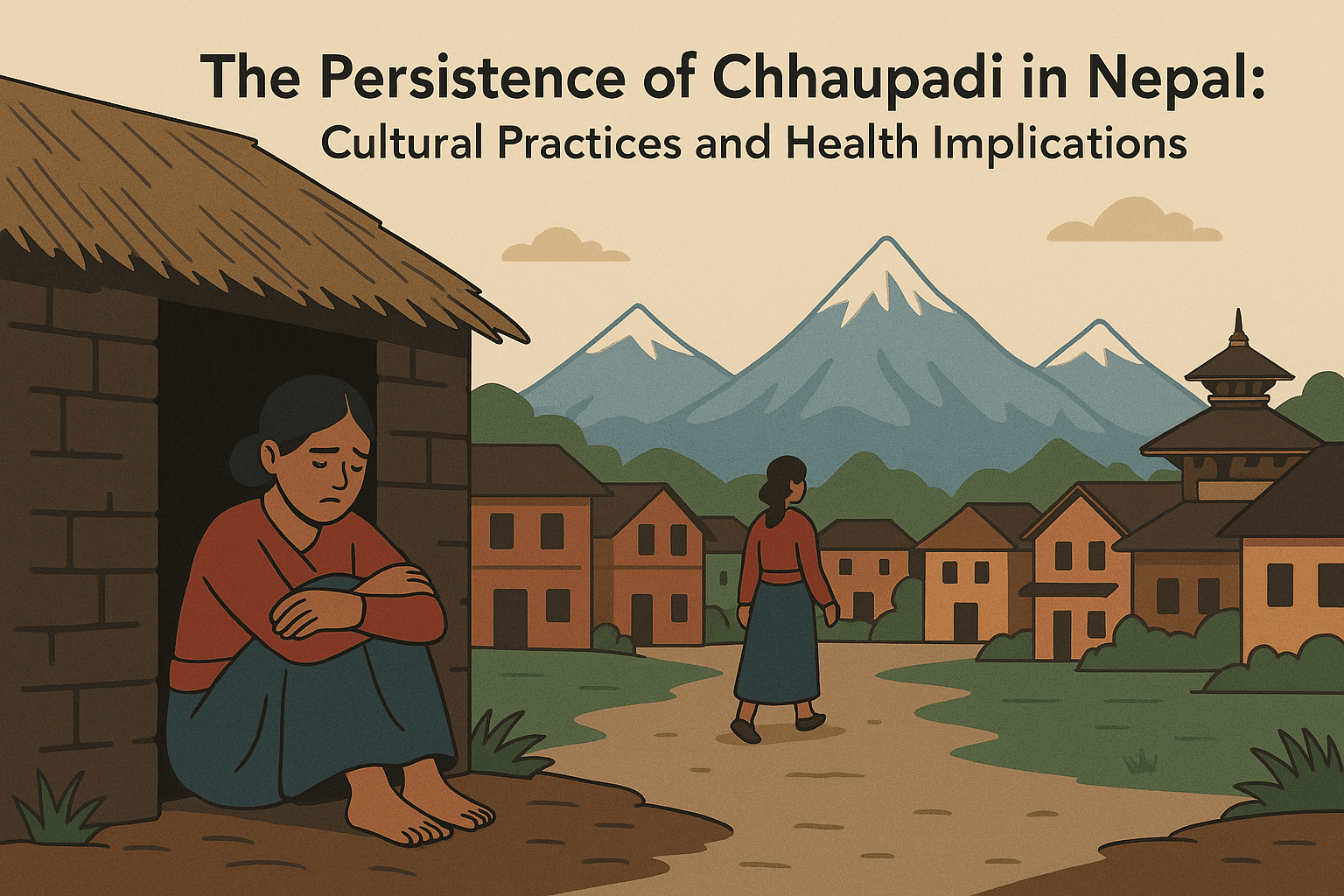I. Introduction
- Definition of Chhaupadi: An ancient practice of Chhaupadi in Nepal where menstruating women are considered impure and are exiled from their homes.
- Geographical Prevalence: Primarily in the western regions of Nepal, such as Achham, Bajura, and Doti.
- Purpose of the Article: To explore the cultural roots of Chhaupadi, its impact on women’s health, and the efforts to eradicate it.
II. Cultural Beliefs Surrounding Chhaupadi
- Historical Context: Rooted in Hindu beliefs that menstruation is impure.
- Taboos and Restrictions:
- Prohibition from entering homes, kitchens, temples.
- Restrictions on consuming certain foods like milk and meat.
- Isolation in makeshift huts or sheds during menstruation.
- Community Enforcement: Social pressure and fear of divine retribution perpetuate the practice.
III. Health Implications of Chhaupadi
- Physical Health Risks:
- Exposure to extreme weather conditions leading to hypothermia or heatstroke.
- Increased vulnerability to animal attacks, including snake bites.
- Poor sanitation leading to infections and respiratory issues.
- Mental Health Consequences:
- Feelings of shame, isolation, and depression.
- Anxiety stemming from fear of punishment or ostracization.
- Impact on Women’s Health: Overall deterioration in physical and mental well-being.
IV. Legal Measures and Their Effectiveness
- Supreme Court Ruling (2005): Declared Chhaupadi illegal.
- Criminal Code (2017): Imposed penalties for enforcing Chhaupadi, including fines and imprisonment.
- Challenges in Enforcement:
- Lack of awareness about the laws.
- Deep-rooted cultural beliefs hindering compliance.
- Limited resources for monitoring and enforcement in remote areas.
V. Interventions and Community Efforts
- Government Initiatives:
- Awareness campaigns highlighting the dangers of Chhaupadi.
- Programs promoting menstrual hygiene and education.
- NGO and Community Actions:
- Establishment of ‘Chhaupadi-free’ zones.
- Empowerment programs for women and girls.
- Engagement of local leaders to challenge and change norms.
- Success Stories: Communities where Chhaupadi has been eradicated through collective effort
VI. Frequently Asked Questions
1. What is Chhaupadi and how does it affect women in Nepal?
Chhaupadi is a traditional practice where menstruating women are considered impure and are isolated from their families, leading to various health and social issues.
2. How does Chhaupadi impact women’s physical and mental health?
Physically, women face risks like hypothermia, infections, and animal attacks. Mentally, the isolation can lead to depression, anxiety, and a sense of worthlessness.
3. What cultural beliefs perpetuate the practice of Chhaupadi?
Beliefs rooted in Hinduism that menstruation is impure and that violating taboos will bring misfortune to the family or community.
4. How can health interventions address the consequences of Chhaupadi?
Through education, awareness campaigns, and providing resources for menstrual hygiene, health interventions can challenge misconceptions and promote safer practices.
5. What legal measures have been taken to eradicate Chhaupadi in Nepal?
The Supreme Court banned Chhaupadi in 2005, and in 2017, the government criminalized the practice, imposing penalties on those who enforce it.
VII. Conclusion
- Summary: Chhaupadi is a harmful practice rooted in cultural beliefs that significantly impacts women’s health and well-being.
- Call to Action: Collective efforts from the government, NGOs, and communities are essential to eradicate Chhaupadi and promote women’s rights and health in Nepal.





